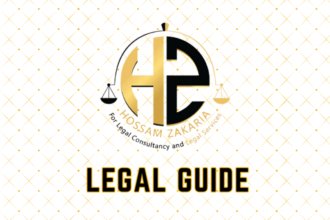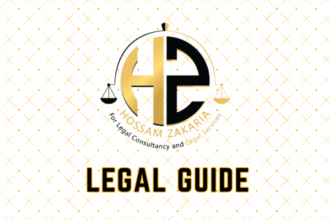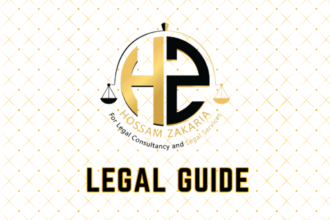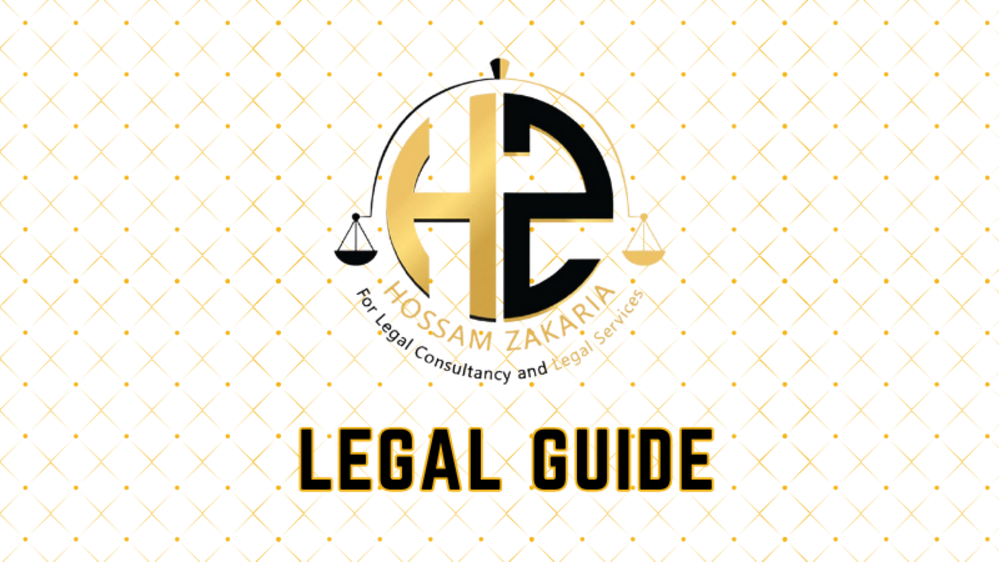Introduction: Understanding the Strategic Importance of Drone Regulations in Qatar for UAE Businesses
The rapid advancement of unmanned aerial vehicle (UAV) technology has unlocked transformative opportunities across the Middle East. For UAE businesses expanding into neighboring Qatar, drones offer tangible gains in logistics, surveillance, agriculture, construction, and more. Yet, this technological promise comes with intricate regulatory requirements, particularly under Qatar’s Civil Aviation Law and its ancillary executive regulations.
Recent updates from Qatar Civil Aviation Authority (QCAA) have further tightened the legal landscape around drone operations, mandating an informed, compliance-driven approach by any foreign entity—including UAE-based businesses—wishing to harness UAVs in Qatar. The repercussions of non-compliance are significant, exposing companies to administrative, civil, and even criminal sanctions.
This legally authoritative article serves as a comprehensive guide for UAE corporate counsel, executives, and compliance managers seeking clarity on Qatar’s drone law. Drawing on official regulations, expert analysis, and best practice insights, we map out a safe, successful path to cross-border UAV deployment—and outline the considerations necessary to avoid legal risks while maximizing operational value.
Table of Contents
- Qatar Civil Aviation Law and Drone Regulation: An Overview
- Key Legal Developments and 2025 Updates
- Detailed Breakdown of Regulatory Framework
- Implications for UAE Businesses Operating Drones in Qatar
- Compliance Strategies: Best Practices and Risk Management
- Case Studies and Hypothetical Scenarios
- Comparison: Qatari and UAE Drone Regulations
- Penalties, Legal Risks, and Remedies
- Conclusion: Forward-Looking Compliance and Proactivity
Qatar Civil Aviation Law and Drone Regulation: An Overview
The Legal Landscape: Law No. 15 of 2002 and Beyond
Qatar’s authority to regulate drones derives from the Civil Aviation Law (Law No. 15 of 2002) as amended, supported by a suite of QCAA regulations and Ministerial Directives. Drones, formally classified as “Remotely Piloted Aircraft Systems” (RPAS), fall squarely within the aviation safety and security remit, even when operated for commercial, research, or recreational purposes.
Complementary to the main statute are:
- Executive Regulations on UAV Usage (QCAA Circular No. 29/2019)
- Technical Guidelines on RPAS Operations
- QCAA’s Permit and Registration Procedures (updated 2024–2025)
Jurisdictional Scope
The regulatory regime applies across the territory of Qatar, including offshore installations and certain zones near national borders—impactful for UAE companies with cross-border logistics or inspection operations. Notably, certain areas (e.g., near critical infrastructure, governmental buildings, and stadiums) are explicitly designated ‘no-drone zones’ under Qatari law, regardless of operator nationality.
Key Legal Developments and 2025 Updates
Highlights from Legislation and New QCAA Directives
As of 2025, several notable changes have emerged:
- Mandatory drone registration with the QCAA, including for foreign-registered UAVs.
- Increased scrutiny on data privacy, digital mapping, and aerial photography activities.
- Introduction of electronic licensing portals for expedited permit management.
- Clearer delineation of penalties and enforcement rights for unauthorized UAV activities.
Table: Key Changes in Qatar Drone Regulation, 2019 vs. 2025
| Regulatory Area | 2019 Framework | 2025 Updates |
|---|---|---|
| Registration | Permit required for commercial use only; paper submissions | Mandatory for all UAVs (commercial & private); online portal |
| Remote ID & Tracking | No requirement | Obligatory electronic identification for drones above 250g |
| Privacy & Data | General data privacy provisions | Specific consent and data processing protocols for aerial capture |
| Flight Zones | Restricted areas published; no real-time updates | Digital geo-fence integration and instant notification of new zones |
| Penalties | Fines only for major breaches | Civil and criminal sanctions; enhanced seizure powers |
Detailed Breakdown of Regulatory Framework
1. Registration and Licensing Procedures
All UAVs operated in Qatar must be registered via the QCAA online portal. This now applies to devices above 250 grams and encompasses both individual operators and corporate entities. UAE companies conducting business in Qatar must:
- Register any company-owned UAVs before importation and operation.
- Obtain individual operator permits for staff deploying drones on-site.
- Submit technical documentation, proof of insurance, and operational risk assessments.
2. Operational Authorization
Separate to registration, UAV flights—commercial or otherwise—require QCAA authorization. Permit requests must detail:
- Purpose and nature of the operation (e.g., aerial survey, filming, inspection)
- Exact locations and altitudes
- Flight path coordinates
- Emergency shut-off and fail-safe protocols
Operators may only fly drones within permitted airspace and within visual line of sight (VLOS), unless a special exemption has been obtained for beyond-visual-line-of-sight (BVLOS) operations. Such exemptions are rare and subject to heightened safety checks.
3. Privacy, Data Management, and Airspace Security
Qatar’s 2025 rules address growing concerns around privacy and state security. UAV systems must not capture images of individuals or property without explicit consent, and data collected must adhere to local data protection mandates (aligned with Law No. 13 of 2016 on Personal Data Privacy Protection). Any mapping or geospatial data sharing with non-Qatari entities is stringently regulated, with infractions punishable by license suspension and heavy civil fines.
4. Import and Customs Clearance
Importing UAVs into Qatar now requires:
- Pre-declaration of drones and associated control equipment
- Advance QCAA approval, referenced during customs clearance
- Proof of end-use (business license copy or project letter)
Failure to follow procedures risks seizure of equipment and legal exposure for the importing entity.
5. Technical and Safety Standards
UAVs must meet QCAA’s technical standards—functioning geofencing, remote identification, and safety features (e.g., autonomous return home, collision avoidance). Operators must also maintain a logbook for all UAV flights and relevant maintenance.
Implications for UAE Businesses Operating Drones in Qatar
Legal and Operational Hurdles for UAE Companies
The evolving legal environment places new burdens on UAE organizations active in the Qatari market. Several critical implications stand out:
- Corporate Accountability: The foreign parent or affiliate company is directly liable for infractions committed by its staff or local subsidiaries.
- Insurance Adjustments: Insurers now require evidence of QCAA registration and operational compliance for coverage validity—paramount for contractual fulfillment.
- Dual Jurisdictional Exposure: Activities could attract attention from both Qatari and UAE aviation regulators (such as the UAE General Civil Aviation Authority, GCAA), particularly if flights occur near the border region.
UAE firms must therefore ensure that:
- Contracts are updated to address compliance liabilities and jurisdictional overlaps
- Employees receive tailored drone law training aligned to both Qatari and UAE rules
- Technology procurement covers only certified, compliant UAV platforms
Hypothetical Example: Cross-Border Construction Inspection
Consider a UAE-headquartered engineering company awarded a major infrastructure project in Qatar. The company intends to deploy its fleet of drones for site mapping and progress monitoring. Under Qatari law, the company must:
- Register each UAV with QCAA prior to shipment
- Apply for flight permits clearly defining each construction site’s coordinates
- Secure individual operator licenses for engineers flying drones on Qatari soil
- Submit data privacy assurance statements for any planned photographic surveys
- Regularly update operational logs available for QCAA inspection on demand
Non-compliance—whether through late registration, drone flights in unauthorized airspace, or unsanctioned data collection—exposes the company to financial penalties and potential project delays.
Compliance Strategies: Best Practices and Risk Management
Essential Steps for UAE Businesses to Remain Compliant
- Appoint a Dedicated Drone Compliance Officer: Someone responsible for bridging regulatory gaps between UAE and Qatari law, overseeing all documentation and training.
- Legal Due Diligence Prior to Contract Award: Ensure proposed UAV operations are feasible—and legal—given local airspace, privacy, and data laws.
- Obtain Dual Clearances: Some projects (e.g., those straddling border zones) may necessitate parallel permissions from both QCAA and UAE GCAA; coordinate both processes at project outset.
- Implement Ongoing Audit and Record-Keeping: Maintain real-time compliance logs for UAV deployment, personnel licensing, and data handling—critical in audits or after incidents.
- Insurance Coverage Update: Confirm insurance policies reflect the latest legal requirements in Qatar, including civil liability for third-party property damage or injury.
Compliance Checklist Suggestion (Visual Aid)
| Compliance Task | Responsible Person | Frequency | Status |
|---|---|---|---|
| Drone Registration with QCAA | Compliance Officer | Prior to deployment | To be completed |
| Flight Permit Application | Project Manager | Each operation | Ongoing |
| Staff UAV Licensing | HR & Compliance | Annually | To be scheduled |
| Insurance Certificate Renewal | Risk Manager | Annually | Completed |
| Operational Log Updates | Pilot-in-command | Every flight | Ongoing |
Case Studies and Hypothetical Scenarios
Case Study #1: Logistics Firm’s UAV Delivery Trial
A UAE-based logistics leader piloted a drone delivery service in Doha to demonstrate last-mile efficiency. Despite technical success, the operation was halted after a competitor reported improper QCAA permit documentation and privacy concerns. QCAA’s investigation led to a two-month suspension and a substantial fine.
Takeaways:
- Even short-term pilot projects require full legal compliance upfront.
- Competitors and other stakeholders are increasingly vigilant regarding regulatory lapses.
Case Study #2: Construction JV’s Site Survey
A joint venture between a Dubai firm and a Qatari contractor used a multi-rotor drone for structure inspection. Although all equipment was certified and registered, the project stalled when the drone incidentally filmed a nearby restricted government facility, breaching local security restrictions. The drone was confiscated, resulting in contractual penalties for project delays.
Takeaways:
- Flight planning must always consider evolving restricted zones and digital geo-fencing.
- Data privacy and security restrictions go beyond standard aviation protocols.
Comparison: Qatari and UAE Drone Regulations
While both states exercise robust oversight over UAV technology, several points of comparison stand out, influencing cross-border business decisions.
| Regulatory Aspect | Qatar Civil Aviation Law (2025) | UAE Federal Decree-Law No. 26 of 2022 & GCAA Regs (2025) |
|---|---|---|
| Mandatory Registration | Above 250g; via QCAA | Above 250g; via GCAA e-portal |
| Commercial Flight Permits | Pre-flight QCAA authorization; site-specific | ROC (Remote Operator Certificate) and pre-flight notification |
| Geo-fencing & No-Fly Zones | Enforced; instant updates | Enforced; app-integrated |
| Privacy/Data Laws | Law No. 13 of 2016 and executive orders | Federal Law No. 2 of 2019 and sector standards |
| Penalties | Fines, suspension, criminal referral | Fines, prosecution, blacklisting |
Penalties, Legal Risks, and Remedies
Sanctions for Non-Compliance
Qatari authorities enforce compliance vigorously, with sanctions spanning:
- Administrative Fines: Typically QAR 10,000–QAR 150,000, depending on severity.
- Criminal Liability: Unauthorized data collection, or endangerment of civil aviation, can result in prosecution and custodial penalties.
- Confiscation: Non-compliant UAVs may be permanently forfeited to the State.
- Operational Suspensions: Repeat or gross infractions may lead to a temporary or permanent ban on drone use by the offending company.
Remedial Steps
- Immediate cessation of offending UAV operations upon notice from QCAA.
- Submission of corrective action report; legal counsel engagement for negotiation.
- Appeal via QCAA’s administrative process—possible mitigation for first-time offenders.
Penalty Comparison Chart (Suggested Visual)
| Breach Type | QCAA Penalty Range | UAE GCAA Penalty Range |
|---|---|---|
| Unregistered UAV | QAR 10,000–50,000 | AED 10,000–50,000 |
| Unauthorized Flight | QAR 20,000–100,000 | AED 20,000–100,000 |
| Data Privacy Violation | QAR 50,000–150,000 + suspension | AED 50,000–150,000 + prosecution |
Conclusion: Forward-Looking Compliance and Proactivity
The accelerating evolution of drone law in Qatar underscores an urgent imperative for UAE firms: cross-border UAV initiatives demand rigorous legal diligence, comprehensive staff training, and dynamic compliance management. Regulatory missteps expose organizations to multi-jurisdictional sanctions, reputational harm, and business disruption.
Best practice dictates a proactive compliance regime—integrating legal counsel early into project planning, updating policies as the law develops, and upskilling personnel to anticipate regulatory trends. By mastering the Qatari regulatory environment, UAE companies position themselves as model operators—unlocking operational value while mitigating legal risk.
As drone technology becomes ever more integral to business, staying ahead of regulation will differentiate the leaders from the laggards across the Gulf. Regular engagement with legal advisories, updates from QCAA and UAE GCAA, and inter-disciplinary compliance frameworks are essential for sustainable, compliant expansion in the era of UAV-driven business.



